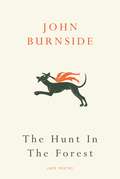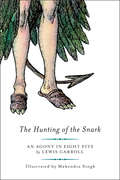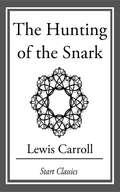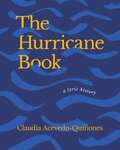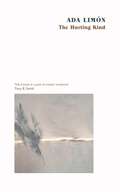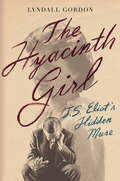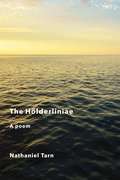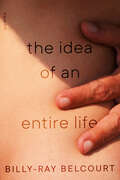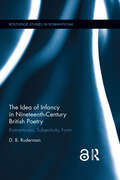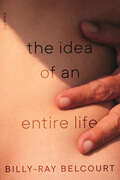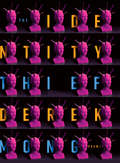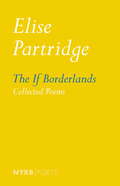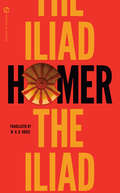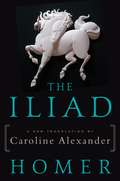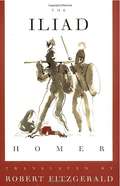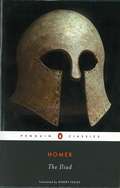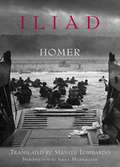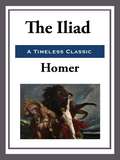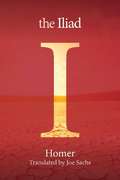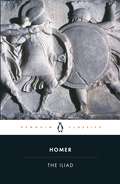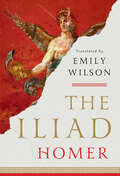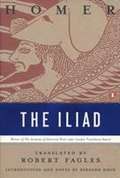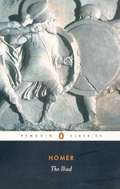- Table View
- List View
The Hunt in the Forest
by John BurnsideTaking its title from Uccello's famous painting of a band of men - on foot and on horseback - massing for the chase, John Burnside's new poems take us on a journey out of the light and into the darkness, where we may just as easily lose ourselves as find what we are looking for. In these poems of hunting and predation, Burnside explores our most deep-rooted and primeval pursuits: romantic love, memory, selfhood, grief, the recollection of the dead. Yet just as we seek, so are we sought out: at any moment we may slide into loss or be gathered in by some otherworldly light; at any moment, the angel of the annunciation may seek us out and demand some astonishing transformation. Even in the pursuit of love, or in the exercise of memory, we fall into snares and become entangled in veils; just as we are always on the point of discovery, so we are always a hair's-breadth away from being lost. Concerned with love and mourning, with what we discover and what remains hidden - with learning how to follow the trail through the forest and find the way home - above all, these poems are about the quest: knowing that whatever we bring back from the hunt, it is always hard-won and never fully our own.With this extraordinary collection of fleet and deftly beautiful poems, John Burnside confirms his place at the forefront of writing, as one of a handful of truly important British poets working today.
The Hunting of the Snark
by Lewis Carroll'They sought it with thimbles, they sought it with care; They pursued it with forks and hope; They threatened its life with a railway share; They charmed it with smiles and soap' Ever since Lewis Carroll's nonsense epic appeared in 1876 readers have joined his ten-man Snark-hunting crew and pursued the search with great enthusiasm.
The Hunting of the Snark
by Lewis Carroll'They sought it with thimbles, they sought it with care; They pursued it with forks and hope; They threatened its life with a railway share; They charmed it with smiles and soap' Ever since Lewis Carroll's nonsense epic appeared in 1876 readers have joined his ten-man Snark-hunting crew and pursued the search with great enthusiasm. What are they hunting for? What is the Snark? Numerous theories have been proposed. Carroll himself provides a helpful Preface to the poem and is recorded as having explained to one reader: 'In answer to your question, 'What did you mean the Snark was?' will you tell your friend that I meant that the Snark was a Boojum. I trust that she and you will now feel quite satisfied and happy. ' This edition, previously published as The Annotated Snark, reproduces the original illustrations by Henry Holiday, including the 'supressed' Boojum drawing. Martin Gardner provides an introduction, notes and bibliography, and an Appendix contains F. C. S. Schiller's 'Commentary on the Snark' and J. A. Lyndon's 'Fit the Seven-and-a-Halfth'.
The Hunting of the Snark
by Lewis CarrollThe Hunting of the Snark (An Agony in 8 Fits) is typically categorized as a nonsense poem written by Lewis Carroll, the pen name of Charles Lutwidge Dodgson. Written from 1874 to 1876, the poem borrows the setting, some creatures, and eight portmanteau words from Carroll's earlier poem "Jabberwocky" in his children's novel Through the Looking Glass (1871). The plot follows a crew of ten trying to hunt the Snark, an animal which may turn out to be a highly dangerous Boojum; the only one of the crew to find the Snark quickly vanishes, leading the narrator to explain that it was a Boojum after all. Henry Holiday illustrated the poem, and the poem is dedicated to Gertrude Chataway, whom Carroll met as a young girl at the English seaside town Sandown in the Isle of Wight in 1875.
The Hurricane Book
by Claudia Acevedo-QuiñonesBraiding together poetry, family lore, and personal reflections, the author traces a century of Puerto Rico's history and the story of three generations of her own ancestors. Each section opens with the story of one of the many hurricanes that have devastated the island and shaped the lives of its inhabitants.
The Hurting Kind: The new collection from the US Poet Laureate
by Ada LimónAn astonishing collection about interconnectedness - between the human and nonhuman, ancestors and ourselves - from National Book Critics Circle Award winner and National Book Award finalist Ada Limón.'I have always been too sensitive, a weeper / from a long line of weepers,' writes Limón. 'I am the hurting kind.' What does it mean to be the hurting kind? To be sensitive not only to the world's pain and joys, but to the meanings that bend in the scrim between the natural world and the human world? To divine the relationships between us all? To perceive ourselves in other beings - and to know that those beings are resolutely their own, that they 'do not / care to be seen as symbols'?With Limón's remarkable ability to trace thought, The Hurting Kind explores those questions - incorporating others' stories and ways of knowing, making surprising turns, and always reaching a place of startling insight. These poems slip through the seasons, teeming with horses and kingfishers and the gleaming eyes of fish. And they honour parents, stepparents, and grandparents: the sacrifices made, the separate lives lived, the tendernesses extended to a hurting child; the abundance, in retrospect, of having two families.Along the way, we glimpse loss. There are flashes of the pandemic, ghosts whose presence manifests in unexpected memories and the mysterious behaviour of pets left behind. But The Hurting Kind is filled, above all, with connection and the delight of being in the world. 'Slippery and waddle thieving my tomatoes still / green in the morning's shade,' writes Limón of a groundhog in her garden, 'she is doing what she can to survive.''Limón is a poet of ecstatic revelation' Guardian 'I can always rely on an Ada Limón poem to give me hope . . . Limón gives us two brains in her poems, too, revealing new ways to view the world' New York Times Magazine 'Ada Limón is a bright light in a dark time. Her keen attention to the natural world is only matched by her incredible emotional honesty' Vanity Fair
The Hyacinth Girl: T. S. Eliot's Hidden Muse
by Lyndall Gordon“Superb… brims with insight into T.S. Eliot’s complex love of women and its impact on his poetry. Beautifully written, fiercely honest, The Hyacinth Girl permanently dissolves the myth of impersonality, fathoming the vexed, tormented emotional life behind Eliot’s work.” —Jahan Ramazani, author of Poetry in a Global Age Winner of the Nobel Prize in Literature, T.S. Eliot was considered the greatest English-language poet of his generation. His poems The Waste Land and Four Quartets are classics of the modernist canon, while his essays influenced a school of literary criticism. Raised in St. Louis, shaped by his youth in Boston, he reinvented himself as an Englishman after converting to the Anglican Church. Like the authoritative yet restrained voice in his prose, he was the epitome of reserve. But there was another side to Eliot, as acclaimed biographer Lyndall Gordon reveals in her new biography, The Hyacinth Girl. While married twice, Eliot had an almost lifelong love for Emily Hale, an American drama teacher to whom he wrote extensive, illuminating, deeply personal letters. She was the source of “memory and desire” in The Waste Land. She was his hidden muse. That correspondence—some 1,131 letters—released by Princeton University’s Firestone Library only in 2020—shows us in exquisite detail the hidden Eliot. Gordon plumbs the archive to recast Hale’s role as the first and foremost woman of the poet’s life, tracing the ways in which their ardor and his idealization of her figured in his art. For Eliot’s relationships, as Gordon explains, were inextricable from his poetry, and Emily Hale was not the sole woman who entered his work. Gordon sheds new light on Eliot’s first marriage to the flamboyant Vivienne; re-creates his relationship with Mary Trevelyan, a wartime woman of action; and finally, explores his marriage to the young Valerie Fletcher, whose devotion to Eliot and whose physical ease transformed him into a man “made for love.” This stunning portrait of Eliot will compel not only a reassessment of the man—judgmental, duplicitous, intensely conflicted, and indubitably brilliant—but of the role of the choice women in his life and his writings. And at the center was Emily Hale in a love drama that Eliot conceived and the inspiration for the poetry he wrote that would last beyond their time. She was his “Hyacinth Girl."
The Hölderliniae
by Nathaniel TarnThe great German Romantic poet Friedrich Hölderlin’s spirit infuses this gorgeous cycle of poems that sing of the loves and devastations of our times The thirty hymns of The Hölderliniae are inspired by the intricacies and transcendent humanity of Beethoven’s last quartets. Nathaniel Tarn’s new book opens with a biographical note on the “Poet of Poets,” Friedrich Hölderlin, setting the scene and introducing the doomed love of the poet’s life, Diotima; it ends in the Neckar River, the river of Hölderlin’s birth and death. Through affairs of love and polity, Tarn speaks through Hölderlin, and Hölderlin speaks through Tarn. The French Revolution—which Hölderlin supported passionately until the Reign of Terror—illuminates our war-torn, ecologically precarious age, as the failures of our age recall those past tragedies. Line after line carries Hölderlin’s hope in an ideal of a poetry that can englobe all the mind’s disciplines and make a universe of its own.
The Idea of An Entire Life: Poems
by Billy-Ray BelcourtDaring and vulnerable, this is the highly anticipated new collection from Griffin Poetry Prize winner Billy-Ray Belcourt.In The Idea of An Entire Life, Belcourt delivers an intimate examination of twenty-first-century anguish, love, queerness, and political possibility. Through lyric verse, sonnets, fieldnotes, and fragments, the poems, sometimes heart-breaking, sometimes slyly humorous, are always finely crafted, putting to use the autobiographical and philosophical style that has come to define Belcourt&’s body of work. By its close, the collection makes the urgent argument that we are each our own little statues of grief and awe.
The Idea of Infancy in Nineteenth-Century British Poetry: Romanticism, Subjectivity, Form (Routledge Studies in Romanticism)
by D.B. RudermanThis book radically refigures the conceptual and formal significance of childhood in nineteenth-century English poetry. By theorizing infancy as a poetics as well as a space of continual beginning, Ruderman shows how it allowed poets access to inchoate, uncanny, and mutable forms of subjectivity and art. While recent historicist studies have documented the "freshness of experience" childhood confers on 19th-century poetry and culture, this book draws on new formalist and psychoanalytic perspectives to rethink familiar concepts such as immortality, the sublime, and the death drive as well as forms and genres such as the pastoral, the ode, and the ballad. Ruderman establishes that infancy emerges as a unique structure of feeling simultaneously with new theories of lyric poetry at the end of the eighteenth century. He then explores the intertwining of poetic experimentation and infancy in Wordsworth, Anna Barbauld, Blake, Coleridge, Erasmus Darwin, Sara Coleridge, Shelley, Matthew Arnold, Tennyson, and Augusta Webster. Each chapter addresses and analyzes a specific moment in a writers’ work, moments of tenderness or mourning, birth or death, physical or mental illness, when infancy is analogized, eulogized, or theorized. Moving between canonical and archival materials, and combining textual and inter-textual reading, metrical and prosodic analysis, and post-Freudian psychoanalytic theory, the book shows how poetic engagements with infancy anticipate psychoanalytic and phenomenological (i.e. modern) ways of being in the world. Ultimately, Ruderman suggests that it is not so much that we return to infancy as that infancy returns (obsessively, compulsively) in us. This book shows how by tracking changing attitudes towards the idea of infancy, one might also map the emotional, political, and aesthetic terrain of nineteenth-century culture. It will be of interest to scholars in the areas of British romanticism and Victorianism, as well as 19th-century American literature and culture, histories of childhood, and representations of the child from art historical, cultural studies, and literary perspectives. "D. B. Ruderman’s The Idea of Infancy in Nineteenth-Century British Poetry: Romanticism, Subjectivity, Form is an interesting contribution to this field, and it manages to bring a new perspective to our understanding of Romantic-era and Victorian representations of infancy and childhood. …a supremely exciting book that will be a key work for generations of readers of nineteenth-century poetry." Isobel Armstrong, Birkbeck, University of London Victorian Studies (59.4)
The Idea of an Entire Life: Poems
by Billy-Ray BelcourtFrom award-winning Driftpile Cree poet Billy-Ray Belcourt, a dazzling exploration of love, anguish, queerness, and Indigenous resistance in the 21st centuryQueer Indigenous poet Billy-Ray Belcourt offers up a powerful meditation on the present as a space where the past and a still-possible utopia collide. Rigorous in research and thought yet accessible in language and imagery, this collection weaves lyric verse, sonnets, field notes, and fragments to examine the delicate facets of queer Indigeneity.Belcourt contends with the afterlife of what he calls &“the long twentieth century,&” a period marked by assaults on Indigenous life, and his people&’s enduring resistance. The poems, sometimes heartbreaking, other times sly and humorous, are marked by the autobiographical and philosophical style that has come to define Belcourt&’s body of work. By its close, the collection makes the urgent argument that we are each our own little statues of both grief and awe.His third book of poetry and sixth across genres, Billy-Ray Belcourt&’s The Idea of an Entire Life leaves readers with a vision for queer Indigenous life as it is shaped by a violent history—and yet pulled toward a more flourishing future.
The Identity Thief
by Derek MongDerek Mong’s highly anticipated new poetry collection, The Identity Thief, is a gathering of voices borrowed and voices lost. These illuminating poems explore how one learns—in an effort to cope, escape, survive, or atone—about the possibilities of becoming someone else. In this collection of poems full of movement and wonder, saints, thieves, environmentalists, new parents, and glaciers all speak. The Identity Thief imagines the pleasures of being an other, using the contemporary dramatic monologue to dazzling effect. The result is a poetry collection full of vision and insight.
The If Borderlands: Collected Poems
by Elise PartridgeThe first collection of poems spanning the beloved Canadian poet's short but dazzling career. Elise Partridge’s poetry has been widely admired for its scrupulous truth to life and meticulous, glittering craft. Whether writing about family and friends, the natural world and the daily round, or serious illness, Partridge was, as Rosanna Warren has said, “a poet of brilliant precisions. Each line represents a new, glinting angle of thought. . . . The result is an art of eerie compassion and an almost hyper-realist perception of the small.”This new collection includes all the poems that Partridge prepared for publication during her lifetime as well as a selection of uncollected or unpublished poems.
The Iliad
by Homer W. H. Rouse Seth L. Schein Adam NicholsonThis translation of The Iliad equals Fitzgerald's earlier Odyssey in power and imagination. It recreates the original action as conceived by Homer, using fresh and flexible blank verse that is both lyrical and dramatic.
The Iliad
by Homer Caroline AlexanderWith her virtuoso translation, classicist and bestselling author Caroline Alexander brings to life Homer's timeless epic of the Trojan WarComposed around 730 B.C., Homer's Iliad recounts the events of a few momentous weeks in the protracted ten-year war between the invading Achaeans, or Greeks, and the Trojans in their besieged city of Ilion. From the explosive confrontation between Achilles, the greatest warrior at Troy, and Agamemnon, the inept leader of the Greeks, through to its tragic conclusion, The Iliad explores the abiding, blighting facts of war.Soldier and civilian, victor and vanquished, hero and coward, men, women, young, old--The Iliad evokes in poignant, searing detail the fate of every life ravaged by the Trojan War. And, as told by Homer, this ancient tale of a particular Bronze Age conflict becomes a sublime and sweeping evocation of the destruction of war throughout the ages.Carved close to the original Greek, acclaimed classicist Caroline Alexander's new translation is swift and lean, with the driving cadence of its source--a translation epic in scale and yet devastating in its precision and power.
The Iliad
by Homer Robert FitzgeraldThis definitive translation of Homer's epic is timeless in its authority and always fresh in its vivid rendering of the pre-eminent war story of the Western world.
The Iliad
by Homer Robert FaglesA work of tremendous influence that has inspired writers from his ancient Greek contemporaries to modernist writers such as T. S. Eliot, Homer's epic poem The Iliad is translated by Robert Fagles with an introduction and notes by Bernard Knox in Penguin Classics. One of the foremost achievements in Western literature, Homer's Iliad tells the story of the darkest episode in the Trojan War. At its centre is Achilles, the greatest warrior-champion of the Greeks, and his refusal to fight after being humiliated by his leader Agamemnon. But when the Trojan Hector kills Achilles' close friend Patroclus, Achilles storms back into battle to take revenge - although knowing this will ensure his own early death. Interwoven with this tragic sequence of events are powerfully moving descriptions of the ebb and flow of battle, of the domestic world inside Troy's besieged city of Ilium, and of the conflicts between the Gods on Olympus as they argue over the fate of mortals. Seven Greek cities claim the honour of being the birthplace of Homer (c. 8th-7th century BC), the poet to whom the composition of the Iliad and Odyssey are attributed. The Iliad is the oldest surviving work of Western literature, but the identity - or even the existence - of Homer himself is a complete mystery, with no reliable biographical information having survived. If you enjoyed The Iliad, you might like The Odyssey, also available in Penguin Classics. 'An astonishing performanc e'Peter Levi 'Plain and direct, noble, above all rapid . . . leading the reader forward with an irresistible flow. [Fagles'] version is imbued with humanity' Oliver Taplin, The New York Times Book Review 'Robert Fagles has given us an Iliad to read aloud: eloquent, rhythmical, and full of power' Jasper Griffin, Oxford University.
The Iliad
by Homer Stanley LombardoThe Iliad is the story of a raging anger and its human toll. The poem recounts "the rage of Achilles," the greatest of the Greek heroes fighting in the war against Troy. The Iliad draws us into a world of warrior aristocrats for whom honor, gained and regained in the front lines of battle, is paramount.
The Iliad
by HomerThe Iliad: Join Achilles at the Gates of Troy as he slays Hector to venge the death of Patroclus. Here is a story of love and war, hope and despair, and honor and glory. The major motion picture Helen of Troy staring Brad Pitt proves that this epic is as relevant today as it was twenty five hundred years ago when it was first written. So journey back to the Trojan War with Homer and relive the grandest adventure of all times.
The Iliad
by Homer Joe SachsHomer's epic about the horrors and heroism of the final year of the Trojan War is one of Western literature's most enduring and moving tales. Joe Sachs, whose translations are known for being faithful to the original Greek, brings new layers of depth, understanding, and interest to the poem.
The Iliad
by Homer'The first great book, and the first great book about the suffering and loss of war' GuardianOne of the foremost achievements in Western literature, Homer's Iliad tells the story of the darkest episode in the Trojan War. At its centre is Achilles, the greatest warrior-champion of the Greeks, who refuses to fight after being humiliated by his leader Agamemnon. But when the Trojan Hector kills Achilles' close friend Patroclus, he storms back into battle to take revenge - knowing this will ensure his own early death. E. V. Rieu's acclaimed translation of The Iliad was one of the first titles published in Penguin Classics, and now has classic status itself.Originally translated by E. V. RIEU Revised and updated by PETER JONES with D. C. H. RIEU Edited with an Introduction and notes by PETER JONES
The Iliad
by Homer“Wilson’s Iliad is clear and brisk, its iambic pentameter a zone of enchantment.” —Ange Mlinko, London Review of Books The greatest literary landmark of antiquity masterfully rendered by the most celebrated translator of our time. When Emily Wilson’s translation of The Odyssey appeared in 2017—revealing the ancient poem in a contemporary idiom that was “fresh, unpretentious and lean” (Madeline Miller, Washington Post)—critics lauded it as “a revelation” (Susan Chira, New York Times) and “a cultural landmark” (Charlotte Higgins, Guardian) that would forever change how Homer is read in English. Now Wilson has returned with an equally revelatory translation of Homer’s other great epic—the most revered war poem of all time. The Iliad roars with the clamor of arms, the bellowing boasts of victors, the fury and grief of loss, and the anguished cries of dying men. It sings, too, of the sublime magnitude of the world—the fierce beauty of nature and the gods’ grand schemes beyond the ken of mortals. In Wilson’s hands, this thrilling, magical, and often horrifying tale now gallops at a pace befitting its legendary battle scenes, in crisp but resonant language that evokes the poem’s deep pathos and reveals palpably real, even “complicated,” characters—both human and divine. The culmination of a decade of intense engagement with antiquity’s most surpassingly beautiful and emotionally complex poetry, Wilson’s Iliad now gives us a complete Homer for our generation.
The Iliad (Penguin Classics Deluxe Edition)
by Homer Bernard Knox Robert FaglesThe Iliad Iliad" is a word that means "a poem about Ilium" (i.e., Troy), and Homer's great epic poem has been known as "The Iliad" ever since the Greek historian Herodotus so referred to it in the fifth century B.C. But the title is not an adequate description of the contents of the poem, which are best summed up in its opening line: "the rage of Peleus' son Achilles." The incident that provoked Achilles' rage took place in the tenth and final year of the Achaean attack on Troy, and though Homer does work into his narrative scenes that recall earlier stages of the war (the muster of the Achaean forces in Book 2, for example, and Priam's first sight of Agamemnon and the other Achaean chieftains in Book 3), the rage of Achilles--its cause, its course and its disastrous consequences--is the theme of the poem, the mainspring of the plot.
The Iliad (Penguin Classics)
by Homer D. C. H. Rieu E. V. Rieu Robert Fagles Peter JonesOne of the foremost achievements in Western literature, Homer's Iliad tells the story of the darkest episode of the Trojan War. At its center is Achilles, the greatest warrior-champion of the Greeks, and his conflict with his leader Agamemnon. Interwoven in the tragic sequence of events are powerfully moving descriptions of the ebb and flow of battle, the besieged city of Ilium, the feud between the gods, and the fate of mortals. <p><p> For this Penguin Classics edition, classicist D. C. H. Rieu has revised the work of his father, E. V. Rieu, celebrated translator and founding editor of the Penguin Classics imprint. The book also includes an introduction and notes by Peter V. Jones.
